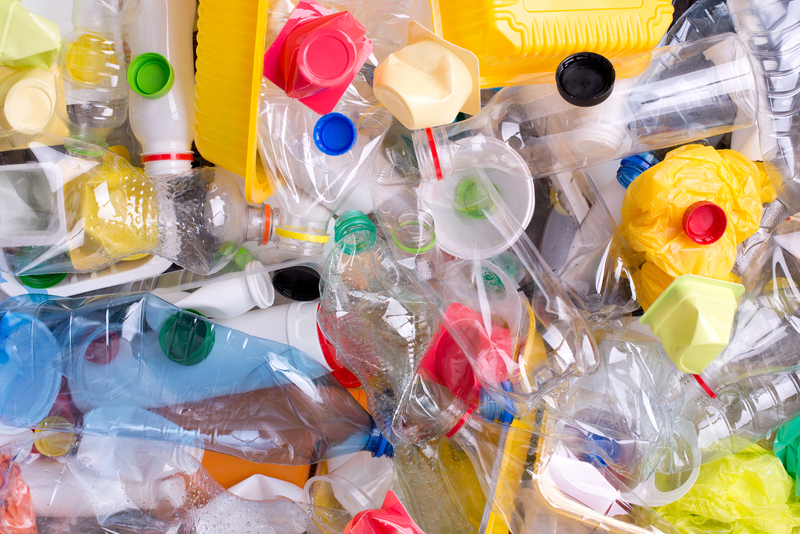Rethinking Waste Collection: A Business Strategy for Success
In an era where sustainability is paramount, innovative waste management has emerged as a key component in achieving business success. Whether you're a small business owner, a municipal leader, or a large corporation, rethinking waste collection strategies can lead to enhanced efficiency, reduced costs, and improved environmental impact. Let's dive into why and how waste collection can be a cornerstone of your business strategy.
The Importance of Sustainable Waste Management
Globally, the quantity of waste produced is overwhelming. This calls for urgency in how waste is managed and calls for a rethink of the entire strategy. Modern entrepreneurs and businesses are now more focused on sustainable practices than ever before. This shift not only benefits the environment but also offers economic advantages.
Environmental Benefits
- Reduction in landfills: An efficient waste collection and recycling strategy can significantly decrease the waste sent to landfills. This helps in preserving valuable land and reduces pollution caused by landfill sites.
- Lower greenhouse gas emissions: Correct disposal and recycling reduce the carbon footprint of waste management considerably.
- Conservation of natural resources: Recycling materials such as paper, plastic, and metal helps conserve natural resources by reducing the need for raw materials.
Economic Advantages
- Cost savings: Efficient waste management practices can lead to significant cost reductions in waste hauling and disposal.
- Revenue generation through recycling: Many recycled materials can be sold, creating an additional revenue stream for businesses.
- Enhanced brand image: Consumers today are more environmentally conscious. By embracing sustainable practices, businesses can enhance their brand image and reputation.

Developing a Successful Waste Collection Strategy
Implementing an effective waste collection strategy requires thorough planning and a comprehensive approach. Below are several key components to consider:
Conduct a Waste Audit
A waste audit is an essential first step. Analyze your waste streams to determine the types and quantities of waste your business is generating. This data will be crucial in planning your waste collection strategy.
Set Clear Goals and Objectives
Define what you want to achieve with your waste management program. Whether it's reducing landfill waste by 50% or achieving zero waste, having clear goals is critical.
Choose the Right Waste Collection Methods
Select the methods that best suit your needs, whether it's traditional waste pick-up, recycling programs, or composting for organic waste. It's essential to integrate innovative solutions such as smart bins that monitor waste levels and optimize collection routes.
The Role of Technology in Waste Management
Technological advancements are revolutionizing waste management, making it more efficient and effective. Here's how:
Smart Waste Collection Systems
These systems use sensors and data analytics to track waste levels in real-time, optimizing collection routes and schedules, thus saving time and reducing fuel consumption.
Recycling Apps and Platforms
Many businesses are developing apps to educate consumers on proper recycling practices and to incentivize participation in recycling programs.
AI and Robotics
Artificial Intelligence and robotics are being used to sort waste more quickly and accurately than human workers, greatly improving efficiency in recycling facilities.
Engaging Stakeholders and Employees
Successful waste management requires buy-in from all stakeholders, from employees to customers. Here's how you can achieve this:
Employee Training and Involvement
- Regular training sessions: Educate your staff on the importance and methods of sustainable waste management.
- Employee incentives: Offer incentives for departments or teams that reduce their waste the most.
Customer Engagement
- Informative campaigns: Run campaigns to educate your consumers on your sustainability efforts and how they can contribute.
- Transparent practices: Always remain transparent about your waste management practices and results.

Challenges and Future Perspectives
While there are numerous benefits to rethinking waste collection, some challenges exist:
Initial Costs
The cost of implementing new technologies or overhauling current systems can be considerable. However, the long-term savings and benefits typically outweigh the initial investment.
Regulatory Compliance
Depending on your location, ensuring your strategies comply with local and national regulations can be complex. Stay informed and consider consulting with environmental compliance experts.
Future Trends
In the future, we can expect even smarter technology integration, increased emphasis on circular economies, and further regulatory developments that emphasize waste reduction and recycling.
Conclusion
Ultimately, rethinking waste collection isn't just an operational necessity; it's a strategic asset. By adopting effective waste management strategies, businesses can bolster their environmental credentials while also honing economic and operational efficiency. The path to success in the modern business landscape is invariably linked with sustainability, and waste collection is an integral part of this journey.
Now is the time to embrace change and reconsider how your business addresses waste management. Doing so not only places you at the forefront of industry best practices but also aligns with a broader push towards a sustainable and eco-friendly future.